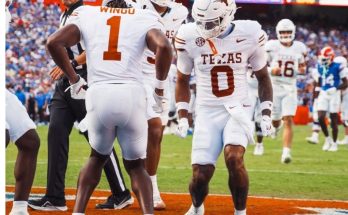
No. 10 Alabama TAKES DOWN undefeated No. 16 Vanderbilt to go to 4-1 The Crimson Tide are now 2-0 in SEC conference play.
No. 10 Alabama TAKES DOWN undefeated No. 16 Vanderbilt to go to 4-1 The Crimson Tide are now 2-0 in SEC conference play. In a night drenched in anticipation and …
No. 10 Alabama TAKES DOWN undefeated No. 16 Vanderbilt to go to 4-1 The Crimson Tide are now 2-0 in SEC conference play. Read More






